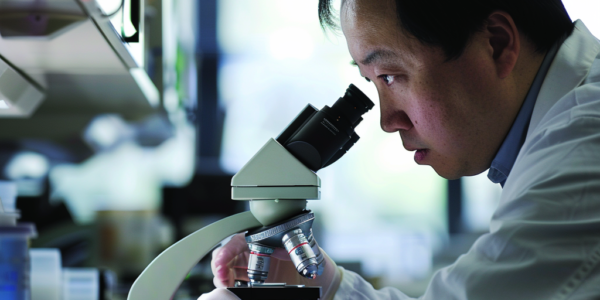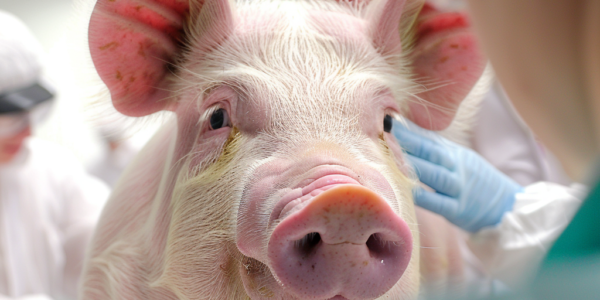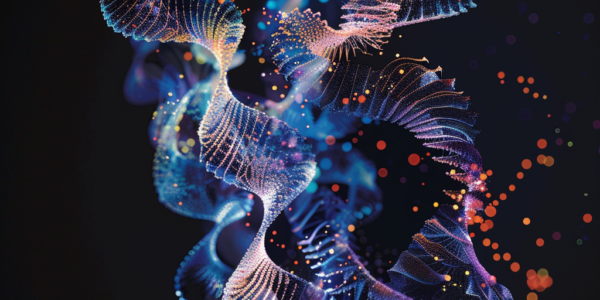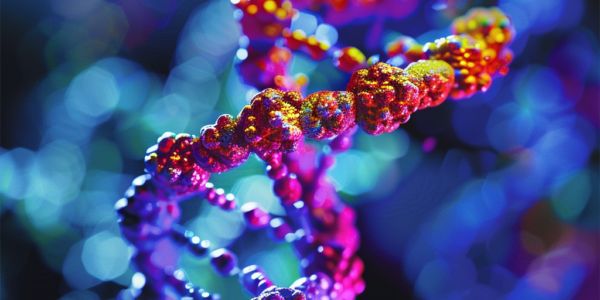Obesity Study in UK, Women’s Tennis in Saudi Arabia, and Peace Initiative Between Switzerland and Russia
Study in the UK identifies genetic variants in two specific genes that may contribute to obesity risk factors. Women’s Tennis Association announces record prize money for WTA Finals in Saudi Arabia, sparking mixed reactions.
JAX Researchers Develop Platform to Study Genetic Diversity in Mutation Outcomes
JAX researchers at The Jackson Laboratory have developed a powerful platform using stem cells from eight different mouse strains to mimic genetic diversity, providing new opportunities for uncovering targets for therapeutic interventions. The platform allows for investigating the effects of background genetics on the DYRK1A gene, associated with autism, microcephaly, and intellectual disability in humans. This work has significant implications for understanding the role of genetic diversity in human health conditions and for identifying potential targets for therapeutic intervention.
Genetic Basis of Human Handedness Revealed in New Study
A new study published in Nature Communications reveals the genetic basis of human handedness, suggesting that rare protein-altering variants may play a significant role. The study involved exome data from over 38,000 left-handed and 313,000 right-handed individuals, finding significant association with left-handedness in the beta-tubulin gene TUBB4B. The research also identified rare coding variant association with left-handedness in genes previously implicated in autism or schizophrenia, shedding light on the genetic underpinnings of this trait and offering valuable insights into the genetic factors influencing human handedness.
Chinese Scientist He Jiankui Resumes Genome Editing Research
Controversial scientist He Jiankui, known for creating genetically edited babies, has returned to his lab to focus on Alzheimer’s and genetic disease research. Despite backlash and legal consequences, he plans to resume human embryo genome editing within regulations. His actions have sparked global condemnation and reignited debates about the ethical boundaries of gene editing.
Epigenetic Signatures of Social Inequality in Spotted Hyenas
Research on spotted hyenas in Tanzania shows that social status affects gene activation at the molecular level, impacting physiological processes such as energy conversion and immune response. The study sheds light on the role of epigenetic mechanisms in the interplay of social, environmental, and physiological factors in highly social mammals.
Genetically Modified Pigs Offer Hope for Organ Transplantation
Scientists are making groundbreaking strides in the field of organ transplantation, offering hope for the thousands of patients awaiting life-saving procedures. The latest development involves genetically modified pigs, which could potentially put an end to the shortage of organs for transplants. Researchers are optimistic about the potential of gene-edited animals to serve as a new source of organs for transplantation, marking a significant advancement in the field of medical science.
Genetic Markers Linked to Increased Risk of Colorectal Cancer from Red and Processed Meat Consumption
Researchers have identified two genetic markers that may increase the susceptibility of certain individuals to colorectal cancer associated with the consumption of red and processed meats. Understanding the genetic underpinnings of this relationship could lead to personalized prevention strategies and interventions.
AI’s Exploration of the ‘Dark Genome’ and Its Impact on Cancer Research
AI has made significant strides in cancer research by delving into the ‘dark genome’ to revolutionize our understanding of cancer and pave the way for more effective treatments. By analyzing non-coding DNA sequences with AI technology, researchers can identify potential therapeutic targets and uncover novel biomarkers for early cancer detection. This intersection of AI and the ‘dark genome’ represents a paradigm shift in cancer research, offering unprecedented opportunities to unravel the complexities of cancer biology and transform the landscape of oncology.
New Genetic Mutation Linked to Severe Combined Immune Deficiency Disorder (SCID)
Researchers have identified a new genetic mutation linked to severe combined immune deficiency disorder (SCID), offering hope for new treatment options. SCID severely compromises the immune system, leaving individuals vulnerable to infections, and advancements in medical science have led to the potential of bone marrow transplants as a solution. This groundbreaking discovery sheds light on the complex genetic abnormalities that lead to SCID and highlights the ongoing need for research in this field.
Genetic Variants Linked to Increased Risk of Colorectal Cancer in People Who Eat Red and Processed Meat
Researchers have identified two genetic markers that may explain the increased risk of colorectal cancer in people who eat a lot of red and processed meat. Understanding the biological basis of this link can lead to better prevention strategies for the third most common cancer worldwide.










